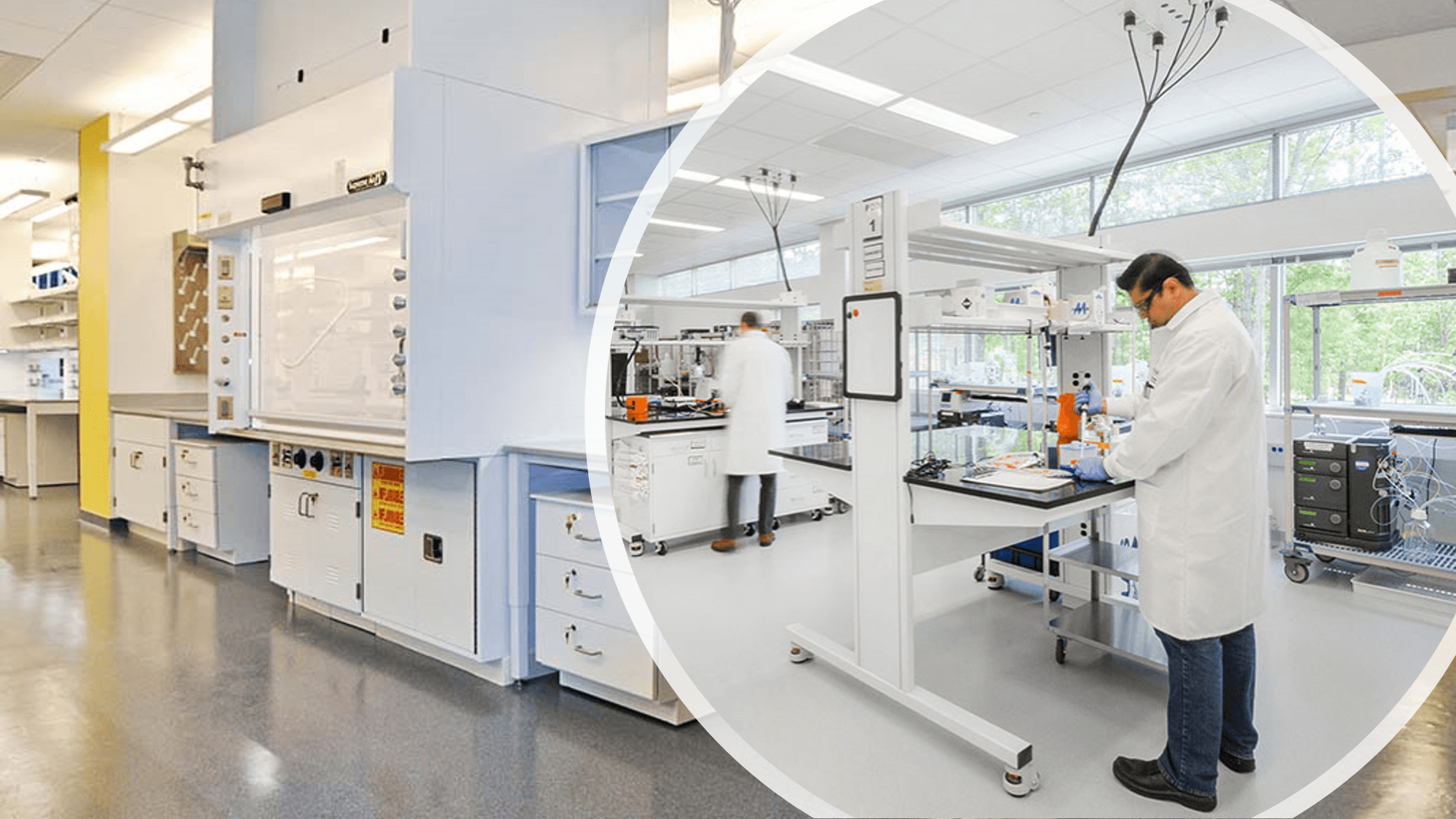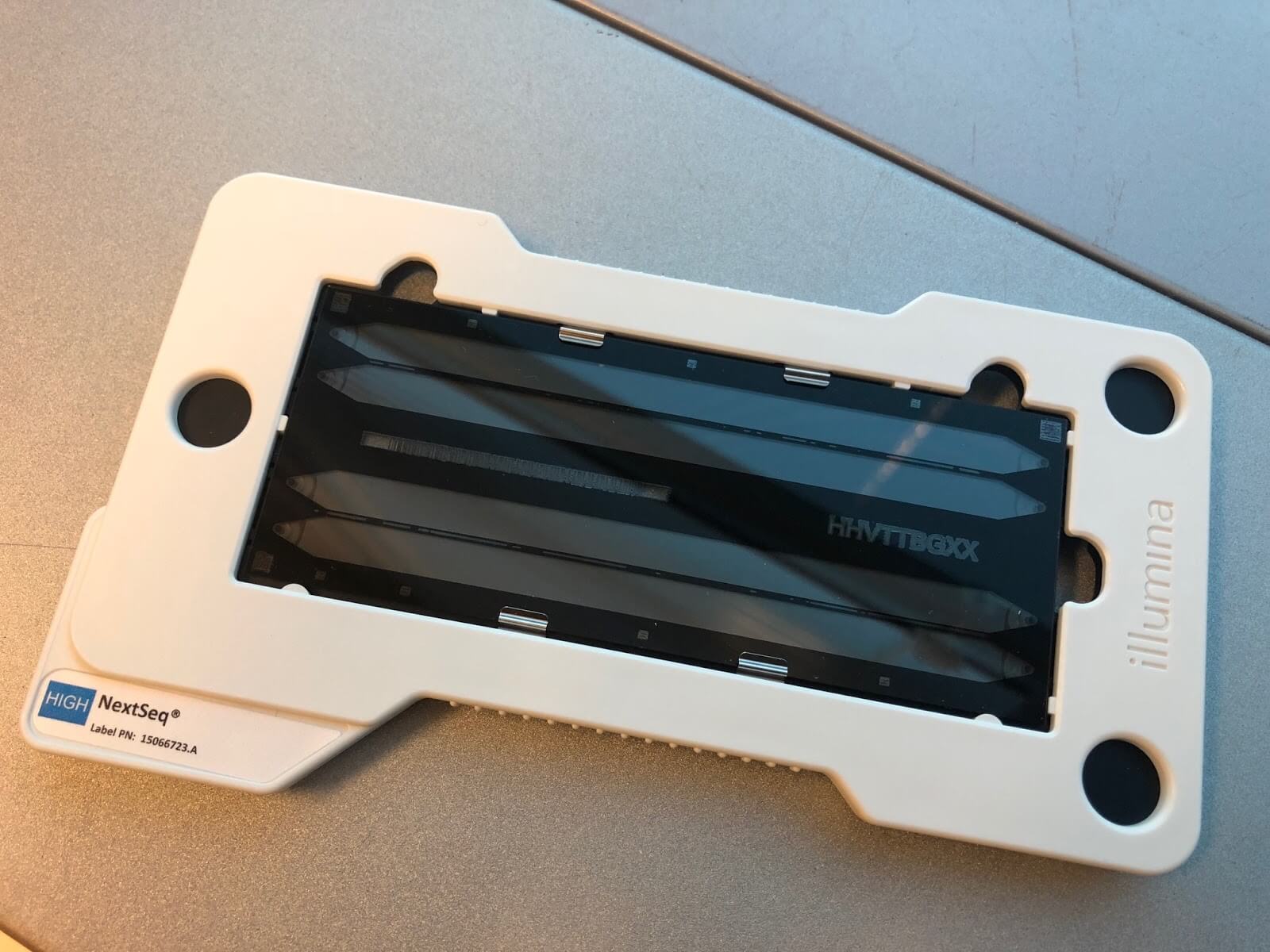
Kits for DNA extraction from a wide range of biological samples, manufactured by Sesana
SesanaGenomics produces kits for high-performance DNA isolation from blood, buccal epithelium, tissues and cell cultures of plants and animals, microbial biomass, etc.

Free test drive
We are ready to provide trial reagents, demonstrate the operation of the kits based on our laboratory and provide the necessary training. You will also be able to work with samples before purchasing.
BestSeller Products
Spectra Q HS Kit for the quantitation of sensitive DNA samples (0,1 - 100 ng)
No. of Reactions: 100/500/1000
Kits can be used with any Qubit Fluorometer.
Kit provide concentrated assay reagent, dilution buffer, and pre-diluted DNA standards. Simply dilute the reagent using the buffer provided, add your sample (any volume between 1 µL and 10 µL is acceptable), and read the concentration using a Qubit Fluorometer.
Depending on sample volume, the assay kit is designed to be accurate for initial DNA sample concentrations of 0.1 to 100 ng/µL.
Bar code: #SpectraHS -100 #SpectraHS - 500 #SpectraHS-1000
Kit provide concentrated assay reagent, dilution buffer, and pre-diluted DNA standards. Simply dilute the reagent using the buffer provided, add your sample (any volume between 1 µL and 10 µL is acceptable), and read the concentration using a Qubit Fluorometer.
Depending on sample volume, the assay kit is designed to be accurate for initial DNA sample concentrations of 0.1 to 100 ng/µL.
Bar code: #SpectraHS -100 #SpectraHS - 500 #SpectraHS-1000

Spectra Q BR Kit for the quantitation of DNA samples (2 - 1000 ng)
No. of Reactions: 100/500/1000
Kits can be used with any Qubit Fluorometer.
Kit provide concentrated assay reagent, dilution buffer, and pre-diluted DNA standards. Simply dilute the reagent using the buffer provided, add your sample (any volume between 1 µL and 10 µL is acceptable), and read the concentration using a Qubit Fluorometer.
Depending on sample volume, the assay kit is designed to be accurate for initial DNA sample concentrations of 2 to 1000 ng/µL.
Bar code: #SpectraBR -100 #SpectraBR-500 #SpectraBR-1000
Kit provide concentrated assay reagent, dilution buffer, and pre-diluted DNA standards. Simply dilute the reagent using the buffer provided, add your sample (any volume between 1 µL and 10 µL is acceptable), and read the concentration using a Qubit Fluorometer.
Depending on sample volume, the assay kit is designed to be accurate for initial DNA sample concentrations of 2 to 1000 ng/µL.
Bar code: #SpectraBR -100 #SpectraBR-500 #SpectraBR-1000

"SG-GM" Library Preparation Kits
No. of Reactions: 96/192
Streamline preparation of comprehensive NGS libraries from dsDNA. These kits utilize enzymatic fragmentation (EZ) methods to generate libraries from genomic DNA and amplicons, ranging in size from 800 bp for research applications.
Bar code: #SG_GM - 96 #SG_GM - 192

DNA Extraction Kit "Amex"
No. of Reactions: 50/100/250
Amex Raissol™ Reagent Kit is designed for rapid and efficient isolation of nucleic acids from amniotic fluid. The DNA extracting method from amniotic fluid with classical total alcohol precipitation of nucleic acids. Modifications have been introduced into the method to increase the yield of nucleic acids due to the small number of cells obtained from amniotic fluid by centrifugation. To increase the yield of NCs, we recommend using the Raissol® co-precipitant, developed for alcohol precipitation of nucleic acids, which allows not only to increase the final amount, but also to facilitate the visualization of precipitated NAs at the washing stages.
Sample purification takes no more than 85 minutes.
Bar code: #amex-50 #amex-100 #amex-250
Sample purification takes no more than 85 minutes.
Bar code: #amex-50 #amex-100 #amex-250

DNA Extraction Kit «CF Extra»
No. of Reactions: 25/50
«CF Extra» Raissol™ Reagent Kit is designed for rapid and efficient isolation of nucleic acids from blood plasma. Sample purification takes no more than 3,5 hours.
Operating principle:
Isolation includes complete cell lysis and subsequent adsorption of nucleic acids on the silicon membrane of the spin column. This is followed by washing and elution of nucleic acids.
Bar code: #cfextra-25 #cfextra-50
Operating principle:
Isolation includes complete cell lysis and subsequent adsorption of nucleic acids on the silicon membrane of the spin column. This is followed by washing and elution of nucleic acids.
Bar code: #cfextra-25 #cfextra-50

DNA Extraction Kits from whole blood "Blood M"
No. of Reactions: 50/250
DNA extraction from whole blood by magnetic particle sorption using a buffer to remove red blood cells allows to obtain high concentrations of DNA for subsequent applications without the risk of nucleic acids loss during washing steps, which is typical for classical methods of alcoholic nucleic acids precipitation.
It is not recommended to reuse frozen blood due to damage to the integrity of the cells and, as a result, loss of DNA during the red cell removal stage. Permissible freezing of blood is 1 time. There is a decrease in DNA yield by 30-40% with a single freezing of blood.
*To work with repeatedly frozen blood, we recommend using the Raissol® Blood Q kit.
Bar code: #bloodM-50 #bloodM-250
DNA extraction from whole blood by magnetic particle sorption using a buffer to remove red blood cells allows to obtain high concentrations of DNA for subsequent applications without the risk of nucleic acids loss during washing steps, which is typical for classical methods of alcoholic nucleic acids precipitation.
It is not recommended to reuse frozen blood due to damage to the integrity of the cells and, as a result, loss of DNA during the red cell removal stage. Permissible freezing of blood is 1 time. There is a decrease in DNA yield by 30-40% with a single freezing of blood.
*To work with repeatedly frozen blood, we recommend using the Raissol® Blood Q kit.
Bar code: #bloodM-50 #bloodM-250

DNA Extraction Kit «Blood N»
No. of Reactions: 50/250
«Blood N" Reagent Kit is designed for rapid and efficient isolation of nucleic acids from whole blood. Sample isolation takes no more than 75 minutes.
The method of isolating DNA by classical method of total alcohol precipitation of nucleic acids (reduced amount of mitochondrail NA)
Operating principle:
Isolation involves the removal of red blood cells with RBC buffer, while partially disrupting the membrane of leukocytes, which helps to reduce the concentration of mitochondrial DNA in the final solution of NA. This is followed by complete lysis of cells, removal of proteins, precipitation of nucleic acids, as well as their washing and elution.
Bar code: #bloodN-50 #bloodN-250
The method of isolating DNA by classical method of total alcohol precipitation of nucleic acids (reduced amount of mitochondrail NA)
Operating principle:
Isolation involves the removal of red blood cells with RBC buffer, while partially disrupting the membrane of leukocytes, which helps to reduce the concentration of mitochondrial DNA in the final solution of NA. This is followed by complete lysis of cells, removal of proteins, precipitation of nucleic acids, as well as their washing and elution.
Bar code: #bloodN-50 #bloodN-250

DNA Extraction Kit «Blood Q»
No. of Reactions: 50/250
The Blood Q kit is a universal solution for DNA extraction from whole blood, also suitable for extraction from multi-frozen samples (more than once).
The procedure of simple and rapid lysis followed by sorption of DNA on the silicon membrane of spin columns provides a good yield of DNA and high purity of the resulting nucleic acids.
In case of blood clots, we recommend using other Raissol® solutions, for example, Blood T, Blood M, etc..
Bar code: #bloodQ-50 #bloodQ-250
The procedure of simple and rapid lysis followed by sorption of DNA on the silicon membrane of spin columns provides a good yield of DNA and high purity of the resulting nucleic acids.
In case of blood clots, we recommend using other Raissol® solutions, for example, Blood T, Blood M, etc..
Bar code: #bloodQ-50 #bloodQ-250

DNA Extraction Kit «Blood T»
No. of Reactions: 50/250
The method of isolating DNA from whole blood using the classical method of total alcohol precipitation of nucleic acids (Total: as nuclear as mitochondrial) allows one to obtain high concentrations of nucleic acids for subsequent applications. It is not recommended to reuse frozen blood due to damage to the integrity of the cells and, as a result, loss of DNA during the red cell removal stage.
Permissible freezing of blood is 1 time. There is a decrease in DNA yield by 30-40% even with a single freezing of blood.
*To work with multi-frozen blood, we recommend using the Raissol® Blood Q kit
Bar code: #bloodT-50 #bloodT-250
Permissible freezing of blood is 1 time. There is a decrease in DNA yield by 30-40% even with a single freezing of blood.
*To work with multi-frozen blood, we recommend using the Raissol® Blood Q kit
Bar code: #bloodT-50 #bloodT-250

Additional products
Nucleic Acids Extraction Kits
Nucleic acid and Protein Concentration Measurement
Kits for Library Preparation
PCR reagents